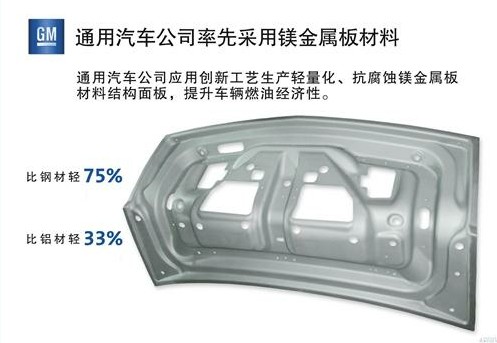In October, General Motors announced that it is the first in the industry to test and apply lightweight magnesium sheet metal materials for thermoforming processes. The material is expected to increase the fuel economy of automobiles by as much as 10%. Medical Connector,Industrial Ethernet Connectors,Industrial Camera Connector,Industrial Automation Connectors Dongguan Shangjie Precision Hardware Co., Ltd , https://www.shangjiecnc.com
The material is processed with a universal patented anti-corrosion treatment technology, which can increase the application range of the high-strength material and replace steel and aluminum more.
General Motors plans to expand the use of lightweight automotive parts throughout the world and seek the possibility of licensed production of related breakthrough technologies. The move is designed to help suppliers have the right to mass-produce magnesium sheet metal materials through this process technology to reduce body weight.
In the same parts, the weight of magnesium metal is 33% lighter than that of aluminum, 60% lighter than titanium, and 75% lighter than steel. The application of magnesium materials will help consumers to save fuel expenses, in addition to making vehicles have more efficient fuel engines and electric power systems.
As of now, car manufacturers have been trying to use traditional sheet metal forming methods to produce tough and reliable corrosion-resistant magnesium sheet metal materials. General Motors uses patented process technology to warm up the magnesium material to 450 degrees Celsius, and then cast it into a highly accurate component shape.
Utilizing this technology, General Motors has developed a magnesium alloy trunk lid that can be put into mass production. This kind of magnesium metal trunk lid has been subjected to as many as 77,000 mechanical impacts and a weight test of 250 kg, which proves to be without any problems.
Die-casting magnesia materials have been widely used in the production of various types of auto parts from the steering wheel to the engine mount, but General Motors is the first company to apply thermoformed magnesium sheet metal materials to mass-produced automotive structural parts. The company expects the application of magnesium metal plates will gradually increase with the improvement of materials and processes aimed at reducing costs.
Jon Lauckner, general-purpose CTO and vice president of global R&D, said: “The innovative use of magnesium is just one example of how GM has used breakthrough advanced technologies to benefit its global consumers. The use of high-strength, lightweight materials such as magnesium and aluminum is also One of the most effective ways to improve vehicle fuel economy and improve vehicle drivability."
GM’s R&D department recently announced an industry-first aluminum welding technology that will create conditions for the future use of this metal in more vehicles.
According to the U.S. Automobile Materials Federation, by 2020, 158.8 kg of magnesium will be used in each automotive material to replace 226.8 kg of steel and 59 kg of aluminum, which will reduce the overall weight of the vehicle by 15%. Such body weight reduction measures can achieve fuel savings of 9% to 12%.
With the use of magnesium metal trunk lid inner panels, GM hopes to reduce the weight of the entire vehicle by 1 kilogram.
“In terms of improving fuel economy, every gram of weight reduction is critical. Being able to use one of the lightest metals to replace heavier metals helps us provide better vehicles to consumers around the world. Fuel economy, while providing consumers with the safety and durability they expect," said Greg Warden, executive director of Global Body Engineering at General Motors.
Many car manufacturers have also been working to improve the corrosion resistance of magnesium materials. General Motors' proprietary patented thermoformed magnesia material successfully withstands continuous 24 hour non-stop corrosion environmental testing for 10 weeks, including 100% humidity and extreme temperature tests.
Jon Carter, researcher of metal materials at General Motors R&D Department, said: “Like all General Motors’ use of all advanced automotive parts, we performed the most stringent strength and corrosion resistance tests we have known about the magnesium trunk lid. It successfully passed all the tests. We think it will perform perfectly even in the harshest environments."